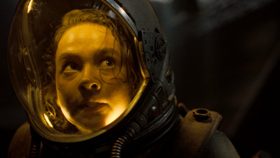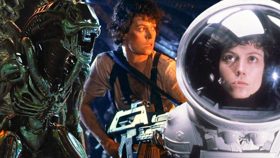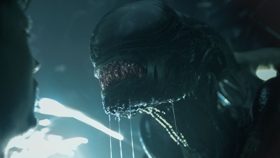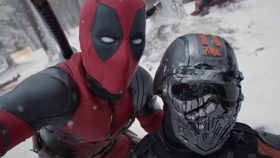Whatever Happened to Marvel’s Rick Jones?
Rick Jones used to be one of the most important players in Marvel’s comics. But the loss of the teen sidekick speaks to the dramatic change in exactly who consumes superhero stories these days.
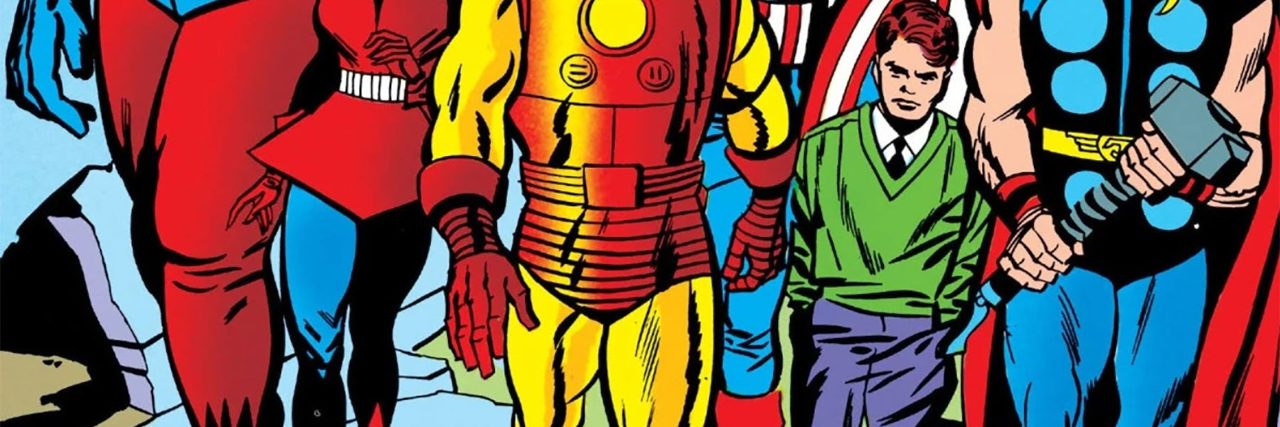
With the Fantastic Four and X-Men franchises back under the Marvel Studios banner, the MCU has become the home of virtually every Marvel character under the sun. With the cast of Marvel’s Fantastic Four reboot now confirmed, Deadpool & Wolverine set for release this month, and X-Men ’97 having recently revived a fan-favorite incarnation of the eponymous team, there aren’t many corners of the Marvel universe left to bring into the fold, aside from ones involving bizarre rights issues like Rom the Spaceknight, the Micronauts, or Godzilla (remind us to tell you about that time the Big G fought the Avengers). However, there is one character who still hasn’t appeared in the MCU, and his absence has us raising our eyebrows.
That would be one Rick Jones, kid buddy and sidekick to the Hulk, who used to be one of Marvel’s most important characters, if you’d believe it. In the 1960s when Marvel Comics launched many of their stalwart properties, Rick was a mainstay who popped up in a wide variety of stories. Although he still makes sporadic appearances in modern comics and has shown up in various cartoons and video games, Rick has never made the jump to live-action, and has been all but ignored by the MCU. So what gives? Why has Rick gotten the short shrift, and what does it say about how superhero storytelling has changed since his creation? Let’s take a look.
The Mixed-Up Comic Book History of Rick Jones
Because Rick rarely appears outside the source material, it’s worth giving a brief rundown for the non-comic readers in the audience. Rick Jones first appeared in Stan Lee and Jack Kirby’s Incredible Hulk #1 in 1962, where he was actually a pivotal part of the Green Goliath’s origin story. A wayward youth at the time, Rick wandered into an atomic testing site at Los Diablos Missile Base (on a dare, no less!), which just so happened to be where a certain Bruce Banner was testing his latest creation, the Gamma Bomb. Banner spotted Rick and ran out to save him at the last second. He pushed Rick into a ditch, but wasn’t fast enough to save himself, with the radiation from the explosion causing his transformation into the Hulk.

Wracked with guilt for ruining Banner’s life, Rick stuck with the doctor and his monstrous alter ego, becoming the Hulk’s closest friend and one of his key supporting characters in his early days. But Rick didn’t just help the Hulk, and soon became a mainstay of the wider Marvel universe by forming the Teen Brigade, a group of teenage radio enthusiasts (it was the ’60s, y’all) who sent messages to heroes about supervillain activities. In fact, a message from Rick and the Teen Brigade is what caused the original Avengers to form against Loki! Rick would spend time with Earth’s Mightiest Heroes as an honorary member, and even tried to become Captain America’s new sidekick to replace Bucky, who was thought dead at the time (the twist revealing Bucky’s survival as the Winter Soldier didn’t happen until 2005).
Cap refused Rick out of fear of seeing another partner die, but Rick got his chance to be a superhero (of sorts) when he wound up entangled with the original Captain Marvel (the alien hero known as Mar-Vell, not the more famous Carol Danvers, who assumed that identity in 2012). Using the Kree Nega-Bands, Rick could switch places with Mar-Vell, bringing the Kree hero back to Earth while Rick took his place in the Negative Zone, and vice versa. During this era, Rick was crucial to the resolution of the Kree-Skrull War, where he saved the universe by channeling the Destiny Force. After Mar-Vell’s death from cancer, Rick would bounce around, becoming a supporting character for Hulk again, getting married to Marlo Chandler, and also winding up merged with Genis-Vell, Mar-Vell’s son who also took up the Captain Marvel name. He even got gamma powers of his own when the Intelligencia turned him into the blue-skinned monster A-Bomb. His importance has diminished in the years since, but Rick has a long history in Marvel comics, which makes it all the more alarming that the MCU has excised his presence.
Who Needs Superhero Sidekicks?
Although the Hulk has been adapted in live action numerous times, Rick has never made the cut alongside him. From the 1978 television show starring Lou Ferrigno, the 2003 film starring Eric Bana, the 2008 film starring Edward Norton, and all across Mark Ruffalo’s appearances in the MCU starting with The Avengers in 2012, the Hulk has never traveled alongside his supposed best friend in live action. In fact, the only mention of Rick in any of these projects is a blink and you’ll miss it namedrop of him on a document of Banner’s known associates in the opening title montage of the 2008 film. So Rick exists in the MCU, but we’ve never seen him and Banner’s never mentioned him. It’s a bizarre situation for a character so tied to the roots of the Marvel universe.
Characters like Rick were a point of connection between young readers and the heroes... But now the comics market serves an older demographic who no longer have need for that exact archetype.
But Rick’s absence is only part of a wider trend of live-action adaptations ignoring or diminishing this sort of character. Looking at other superhero franchises, the archetype of the younger male audience surrogate, which used to be such an important part of superhero comics, is rarely ever included in modern adaptations. Look what happened to Jimmy Olsen not having much to do across all of the Superman films, Robin only properly appearing in three of the 10 dedicated Batman live-action films (one of which was the 1966 adaptation of the Adam West show), and even Bucky. He used to be quite similar to Robin as Captain America’s bright-eyed teenage sidekick, but he was changed into a hunk in Captain America: The First Avenger, and then immediately transitioned into his “cooler” incarnation as the Winter Soldier in his second appearance.
That last example can help answer exactly what’s happening here. The audience for superhero comics has changed dramatically since the genre’s genesis in the Golden and Silver Ages of comics, where the readers of that type of story was overwhelmingly thought to be young boys. Characters like Rick were a point of connection between those readers and the heroes they idolized, allowing them to insert themselves into the fictional universe. But now superhero stories are consumed as four-quadrant entertainment, with the comics market especially serving an older demographic who no longer have need for and often outright reject that exact archetype. The mindset that characters like Rick are “annoying,” “outdated” or “cringe” seems to have seeped into the people who make adaptations of these properties. But we have to ask: Has something vital been lost by getting rid of the Ricks of the superhero world?
Is There Still Room for Rick in the MCU?
Sadly, the time for Rick Jones seems to have passed in the current MCU. Although the Hulk is still around, and many of his supporting characters like General Thunderbolt Ross, Betty Ross, and the Leader are scheduled to appear in Captain America: Brave New World (for some reason), having Rick show up now would likely feel like an afterthought. Granted, when it comes to the Hulk franchise, we have to acknowledge that part of the problem is tied to a rights dispute between Marvel Studios and Universal Pictures, which has prevented any solo Hulk films from being produced after the 2008 film. If The Incredible Hulk had received a direct sequel, perhaps Rick would have had his time in the limelight.
But even outside the legal baggage with the MCU’s Hulk, Rick was never included in previous Hulk movies and shows (not counting cartoons). This is a shame for multiple reasons, the first being that Banner becoming the Hulk is no longer the result of an act of altruism in adaptations, but often instead coming down to an accident driven by hubris (if his origin isn’t just outright skipped over). The second is that it contributes to the bigger trend of supporting characters in superhero stories being pushed aside to make room for more superheroes. True “solo films” have become rare after the success of the MCU, but having heroes only really be friends with other heroes has the detrimental effect of making their worlds feel smaller, not larger.

Sure, it’s a lot of fun to see the Avengers team up to fight a big villain. But forgetting about the little people, the “normal” friends, colleagues and love interests who populate a hero’s social circle, makes it harder to invest in the emotional stakes of the story. After all, why are the heroes saving the world if not for the people in their lives who can’t? And especially by getting rid of the kid sidekicks like Rick, it feels like both the audiences who enjoy these stories and the studios that make them don’t want to admit that superheroes are kids’ fare at heart. There’s nothing wrong with loving superhero fiction as an adult (it’s practically part of our job description here at IGN!), but it appears many behind the camera and watching the films are afraid to see the genre for what it is, and Rick Jones and others have been casualties of that mentality. Maybe it’s too late for Rick to make an impact in the MCU, but it’s worth remembering him so that future superhero films don’t make the same mistake of cutting out the supporting casts who help make up the heart of the narrative.
Carlos Morales writes novels, articles and Mass Effect essays. You can follow his fixations on Twitter.
